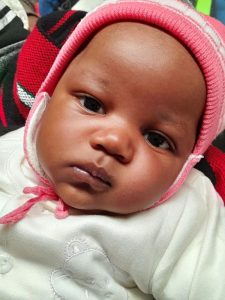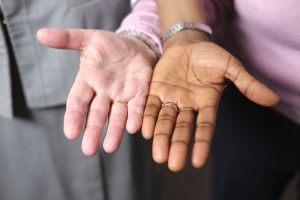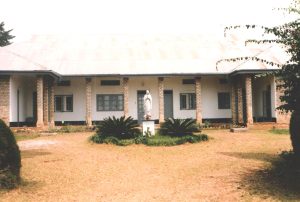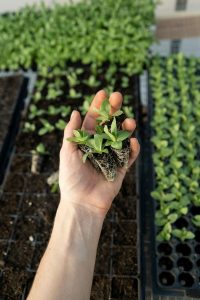by Nadia Ramoutar MMM Communications Coordinator Ireland 23.04.2025
 This may seem obvious, but war is bad for babies.
This may seem obvious, but war is bad for babies.
A recent UN report shows what looks like promising news that deaths for children under five years of age has gone down by 50% in the past 25 years. But what that statistic does not reflect is that in areas of the world where specific efforts are being made, great results have taken place that offer us some insight. While is the poorest areas, things are much worse. That’s the problem with statistics.
According to the report, “ progress to save children’s lives is possible, even in resource-constrained settings.” Specifically the report shows that several low-income and lower-middle-income countries have made remarkable strides in reducing under-five mortality rates: Cambodia, Malawi, Uzbekistan and Rwanda have all reduced under-five mortality by over 75 per cent since 2000 for example. These countries offer compelling evidence of what can be achieved in child survival when high-impact interventions reach the most vulnerable populations.”
Now, if you know anything about math, the fact that some countries have reduced their rates by 75% then we know the rates are still climbing in other parts of the world where less focused efforts are being made.
We also know too that this year we have seen major changes in funding and health assistance globally which will negatively impact the poorest women and children the most. Those who needed the help desperately will not be able to get it.
In war-torn areas, of which there are increasingly more, there will be a serious issue in trying to keep babies alive in that fragile first 28 days of life. We know that the mothers, already stressed and challenged in war-torn areas will have even greater grief facing the loss of a child.
American Scholar Cornell West famously said “Justice is what love looks like in public.” I often think of this quote when I consider that we still live in a world where justice for a baby depends on their geography. Who they are born to and where they are born predicts if they will get to live or not. That just seems like a kind of spiritual citizenship that is wrong on several levels.
We are faced with some seriously dark times in which billionaires seem to get richer and more powerful and the most needy will fall into a bleak oblivion. Whatever we can do to address this massive imbalance we are called upon to do.
Perhaps it is just meditate in our spiritual reflection about this massive imbalance. It may be to get active in mission work or make a donation. Perhaps it is to just pray for justice.
But in a world where there seems to be little regards for justice, we need to all agree, that war is bad for babies, always was and always will be.
by Sr. Sheila Campbell MMM Ireland 20.04.2025
 Today we celebrate the Risen Christ. Alleluia! But do we really understand the full meaning of the Risen Christ? The older I get in years, the more I realize that I am only at the beginning of my understanding.
Today we celebrate the Risen Christ. Alleluia! But do we really understand the full meaning of the Risen Christ? The older I get in years, the more I realize that I am only at the beginning of my understanding.
When I was a novice, we had a great Scripture teacher, Sr. Maura Ramsbottom MMM and I never forget her talk on the Easter Scriptures. Her whole body vibrated with excitement as she shared the story of Mary Magdalene coming to the empty tomb. Jesus says to Mary Magdalene “Do not cling to me, for I have not yet ascended to my Father”.
Do not cling to me. I am someone different. I have changed. How often do I cling to a person, to an idea, to be ‘my’ kind of person instead of freeing them to be themselves? Accepting Easter is accepting radical change. Things are different now. I can remain trapped in old ways, or I can open myself to the excitement and thrill of developing a new relationship. It is a little scary to move outside of our comfort zone but deep down we know it is where we are called to, to find new life.
And then there is the second part, “I have not yet ascended to my Father”. That brings me to a second pondering. So much of our religion focuses on God as being directly concerned with this earth, with humanity. And maybe rightly so, because this is where we are. If we believe in the Incarnation of Jesus, we must take our humanness seriously. But God is much bigger than anything we can think of or put into human language. There is the universe with its billions and billions of stars and galaxies. Are there other worlds out there where God is equally involved? And the universe itself is only the part we can fathom with our human understanding and science. Are there other ‘realities’? The more you think about it, the wider the concept becomes.
Maybe it all come down to “Do not cling to me”. Let God be God, not trying to keep God within my comfortable God image. Yes, I believe in the Resurrection, in hope, in the future. Do I understand it? Only a fraction! So today I say “Alleluia!” and keep up the pondering.
by Sr. Jo Anne Kelly MMM Ireland 19.04.2025
 “What is happening? Today there is a great silence over the earth, a great silence and stillness, a great silence because the King sleeps” This is a quotation from an ancient homily in the Office of Readings for Holy Saturday.
“What is happening? Today there is a great silence over the earth, a great silence and stillness, a great silence because the King sleeps” This is a quotation from an ancient homily in the Office of Readings for Holy Saturday.
On Holy Saturday morning in our village in Nigeria where we care for patients with leprosy, there is a silence, a quietness. Yesterday, Good Friday, we spent time with Jesus in His passion following Him to Calvary and keeping Vigil with Him until late in the night.
This morning we are up shortly after sunrise, to pick flowers in preparation for the Easter Vigil Mass. It is important to pick them while there is still a coolness in the air, and to keep them in water in the coolest place we can find.
The mood is sombre as the village people prepare for the evening. Women and young girls are in the church, sweeping, scrubbing and cleaning. The young men and boys keep them supplied with buckets of water from our new borehole, and help with moving of benches or any other heavier work. Older men collect palm fronds for decoration for the pathway to the church door. Others get branches and sticks of dry wood for the paschal fire, piled high some distance from the church door. All work according to their ability and mobility.
Later everyone will add some small stick, branch or twig to make that fire. The children are around everywhere finding ways to play and occupy themselves, older ones looking after younger ones.
The Sacristan has the privilege of preparing the Altar and Tabernacle, dressing them with freshly laundered linings, linens and drapes and other simple decorations. She and her flower girls will arrange the flowers later when the hot midday sun has passed. When fully prepared the church looks as beautiful as we could make it.
About mid – morning we have a visitor, a monk from the nearby Cistercian monastery. For his meditative morning walk he followed the course of the river, walking the banks through fields, fences and hedges eventually reaching the end of our village road. After a drink of refreshing cold water he wished us a happy Easter and took an easier way back to the monastery to get ready for the ceremonies he will lead for the Cistercian sisters.
We planned how all our people will be there for the ceremony. Most will come on foot, on crutches or in wheelchairs but some will need a car ride. All will be there. The fire will be lit early, a huge bonfire. Preparations continued and the mood lightened as we anticipated the beautiful ceremony, the music and singing and all that was to come. The children became more excited thinking of their new clothes and the big fire.
Just after dark we all gather. The children are fascinated with the big fire and delighted at the sparks flying high into the night sky. One little fellow, with his head back to look into the sky went too far and fell back. Luckily his older brother caught him before he hit the ground. With solemn ceremony the priest blesses the fire and from it lights the Paschal Candle, our sign and symbol that Jesus has risen, He is alive, our King no longer sleeps.
It is a night of Easter joy. With all our candles lighted we process to the church to celebrate Jesus our Risen Lord and King, who is here, Who loves us and is forever present to us.
by Sr. Margaret Anne Meyer MMM USA 16.04.2025
 Life was surprisingly good in Uganda at that time. Matoke cost 2 shillings and 50 cents, the basis of hospital food for a day. The patients also got afternoon tea and a big slice of bread. The dollar was worth 7 shillings. We never seemed to have enough money, and our drug bill went over 60 thousand shillings and still the Asian Dealers in Bombay Traders wanted to encourage us to buy more medicines. I was ashamed to go into their store, but they gave me a bottle of perfume when going on home leave in 1970. They said we would eventually pay our bill someday and I was happy to hear that the Congregation paid the bill while I was on leave. The money we made in the hospital had been used to pay the lay Doctors and wives’ airfares to Canada.
Life was surprisingly good in Uganda at that time. Matoke cost 2 shillings and 50 cents, the basis of hospital food for a day. The patients also got afternoon tea and a big slice of bread. The dollar was worth 7 shillings. We never seemed to have enough money, and our drug bill went over 60 thousand shillings and still the Asian Dealers in Bombay Traders wanted to encourage us to buy more medicines. I was ashamed to go into their store, but they gave me a bottle of perfume when going on home leave in 1970. They said we would eventually pay our bill someday and I was happy to hear that the Congregation paid the bill while I was on leave. The money we made in the hospital had been used to pay the lay Doctors and wives’ airfares to Canada.
Sr. Evangelist O’Connor came sometime later, and she trained me in as an MMM doctor. She and Sr. Ita Barry were tremendous nurses and most helpful to me in every way. I remember operating on a woman who had been in labor a long time. I lost my nerve and told Sr. Ita that the woman was going to die. She said, “She is not” and that brought back some courage and from then on all went well. I will be forever grateful to our Sister nurses for their help in getting me started.
One of the caesarean sections, I remember, was, a woman whose baby’s arm prolapsed. The mother was incredibly happy to have a live child despite the fact the arm was paralyzed. With exercises, the arm soon recovered and when the mother brought back the child, to my delight, she had named the baby Julius Meyer Kalubegga.
Another was when a mother had a concealed accidental hemorrhage and received four units of blood. The child was dead, but we thanked God the mother was spared. It was not until the mid-1980’s when Sr. Goretti was doing her apostolic work in Makiungu Hospital, Tanzania, did I find out that this woman was the mother of our Sr. Goretti Nalumaga. I was happy for her.
At times we did not have experienced surgeons, and I remember one morning trying to deliver a breech miscarriage at 24 weeks. The woman was bleeding very much. The baby’s head was stuck in the cervix, and I tried to repair the damage done but to no avail. Thank God we had a phone which worked, and Dr. Lane came from Villa Maria Hospital to help me. He did a hysterectomy in which the ovaries were also removed. I felt sorry for the woman, but her life was spared. The cervix was sent for pathology, and it came back with result of Carcinoma plus four. The woman was only 28 years of age but when all was explained to her husband, he thanked God her life was spared. Dr. Lane came to work for us many times for one or two years and then returned to England. We appreciated all he did for us.
by Marion Ryan rsm Ireland 12.04.2025
 Listening to a podcast by Ilio Delio as I drove to work the other morning, a phrase that she used resonated deeply with me. She referred to someone being on the ‘inside of the outside and the outside of the inside’. This spoke to me of where I believe Mercy calls each of us to be, regardless of our disparate realities. I felt it described where I was heading, to begin my day’s work.
Listening to a podcast by Ilio Delio as I drove to work the other morning, a phrase that she used resonated deeply with me. She referred to someone being on the ‘inside of the outside and the outside of the inside’. This spoke to me of where I believe Mercy calls each of us to be, regardless of our disparate realities. I felt it described where I was heading, to begin my day’s work.
For the past few years, I have had the privilege of ministering as a Chaplain in Ireland’s largest prison, Midlands, which is currently overcrowded, holding close to 1,000 men from across the globe between 18 years and 85 years old, serving sentences, which vary from a few months to life. Each has left a trail of victims whose lives are impacted in a myriad of ways. Each too has left families, whether in touch or estranged, whom we also support, especially when their partner or son is newly committed. These families can find themselves struggling to manage their shattered lives and the fall-out from what has happened, in the glare of sensationalist media coverage. In some ways, the men are sheltered from this, although they can get a hard time from other inmates if the case hits the papers, particularly if it is of a sexual nature.
Prison is a harsh and brutal environment, loud, stark and at times violent. Overcrowding and drug misuse turn up the volume on each aspect for men and staff alike. All is not doom and gloom though as I daily witness acts of kindness between some men who share from the little they have. As Chaplains, we are the only service, apart from officers, given a set of keys and freedom to roam the landings. The men who see us as being on their side and willing to advocate on their behalf usually welcome us. We get to be with them at the best and worst of times, whether it is engaging in their banter, hearing about their struggles or walking through crises alongside them, whenever we have had to break bad news or as they cope with news of a lengthy sentence. While it can take time to gain trust, the men open up and share deeply, while never excusing their crimes, telling stories of trauma, addiction, and oftentimes – mental health issues, which can somehow explain their journey to the furthest margins of society. Being a Prison Chaplain offers the chance to be a face of the mercy and love of God at the ‘inside of the outside’ so to speak, among those whose actions have led them there. As Pope Francis himself said ‘who am I to judge’.
Chaplains, although independent, take part in the multi-disciplinary team within the prison system, placing us firmly ‘on the outside of the inside’. A Chaplain, to borrow a term from Richard Rohr, gets to be a sort of ‘officially licensed critic’ challenging decisions that affect the men; due to our unique relationships with the men and their families, we often get to hear what others don’t and can put an action or attitude in context. Chaplains can, through our Annual Reports, be the proverbial thorn in the side of the prison system, offering a unique vantage point and critique. While I find it difficult to explain exactly what a prison Chaplain does, I do however know why I, and many Sisters before me, have ministered in prison. I believe that as prisoners are literally and figuratively on the outside of society, it is the kind of place where Mercy is called to be, ‘on the inside of the outside and the outside of the inside’, as we choose again to live our Mercy Mission in every encounter.
Marion Ryan rsm
South Central Province
(first published by Mercy Sisters Ireland)
by Sr. Sheila Devane MMM Ireland 09.04. 2025
 Some weeks ago, I woke up to hear an announcement on the radio news saying : “Ireland will now buy 100 generators to be delivered as soon as possible.” One hundred generators! I immediately stopped in my tracks, listened for more information but the announcer moved quickly to the next news item.
Some weeks ago, I woke up to hear an announcement on the radio news saying : “Ireland will now buy 100 generators to be delivered as soon as possible.” One hundred generators! I immediately stopped in my tracks, listened for more information but the announcer moved quickly to the next news item.
We had just experienced Storm Eowyn followed quickly by Storm Hermina; many parts of the country had no electricity for three weeks, or more, at the most bitterly cold time of the year. Homes, businesses, farms, and all kinds of facilities were relying on small generators, lanterns, even candlelight and the support of any, and all, local hotels, or neighbours with electricity.
The government response was immediate, but to those impacted never enough and too slow; teams came to our assistance from across Europe and we thank them. Our Irish repair services for their extraordinary work at a time of crisis and untold suffering for vulnerable people. But one hundred generators! I could now understand why all small towns and villages would want their own generator. They had every reason. More storms are forecast.
My mind went back to the generators which served the many missions I worked in during my time in East Africa. We had one in Dareda, Nangwa, Makiungu, and in all the mission stations in Turkana. So, generators were familiar to me and indeed I travelled back to Africa more than once with a spare part, or two, in my personal luggage! Many of us MMMs did.
Let me tell you about the generator in Makiungu and the special Generator Man! Makiungu Hospital was a very busy general and maternity hospital with a wide community outreach; we relied on electricity for elective and emergency surgery and for light for a few hours each evening to care for the many in-patients. As Sisters living in a staff house, like all the staff, we too got about 3 hours’ electricity each evening. This was a time when we were off duty (more or less!) so everything needing light was done in this window of time. It was greatly appreciated and we busied ourselves by writing letters, organising much around the house, charging batteries for our torches and so much more.
The man in charge of the generator was Bosco, he held an important position in the hospital on a par, one could say, with the administrator, doctor in charge or matron such was his onerous responsibility. The likelihood of a catastrophe were he, or the generator, to fail to deliver was unthinkable. We all knew him, where he lived and he was on call 24/7. He held the key to the cement building in which the generator was housed; his knowledge was laudable; his commitment wholehearted, and any fault or flaw with the generator was immediately reported and shut down all forms of surgery and many aspects of our daily lives.
If we left the light switch on at 9pm and an emergency surgery happened during the night then we were awoken to bright lights – often another opportunity to “get things done” even if it was in the middle of the night! We also knew that one, or more, of our Sisters, staff and, of course, Bosco were already up, working and saving a life.
Getting adequate diesel to fuel the generator was a major challenge and huge expense and became really serious during the war in Kuwait. Bosco kept going, our generous donors believed in our work and helped us greatly. Unaccountable numbers of people were saved by the generator and its dedicated manager.
“ God said, ‘Let there be light’ and there was light.” Genesis 1:3
by Sr. Sheila Campbell MMM Ireland 05.04.2025
“Wherever you are, whatever you do, let there be in your heart a space for others to be, so that, unafraid, they may experience themselves as loved and so be healed.” 7:3
 The quote above comes from our MMM Constitutions. What are the Constitutions? They are our rule of life, our guiding principles, something we cherish and try to live up to. Wisely this section is in a chapter called Hospitality. Hospitality is an MMM ‘flavour’ that we learnt from the Benedictines.
The quote above comes from our MMM Constitutions. What are the Constitutions? They are our rule of life, our guiding principles, something we cherish and try to live up to. Wisely this section is in a chapter called Hospitality. Hospitality is an MMM ‘flavour’ that we learnt from the Benedictines.
Now, just saying the words does not make them happen! Recently I came across the words above just when I was exploding with anger at the words and actions of some of our world’s politicians. Can I hold a space in my heart for others to be? I wasn’t very good at it that day!
The first question is: “Is there space in my heart at all?” I can get so self-centred or inner-focused that my heart hardens, and I don’t think of others at all – not even enough to reject them! My first task this Lent is to widen my heart – let others in. How do I do that? I think the key is to listen to them. Really listening means going beyond my own pre-conceived ideas about their culture, race, gender etc. Just treating them as a fellow human being, struggling to find a way through life as I am myself. That is the first grace I ask for.
Can I love this other person in a way that they feel loved, accepted and so healed? The key to this one is a constant remembering on how I am loved. I am loved by God, by my natural family and by my MMM family. I know I also have a few close friends who love me too. Can I bask in this love and pray that it reaches out to others?
This Lent for me is all about space, love and acceptance. How is your Lent going?
by Sr. Noeleen Mooney MMM Ireland 02.04. 2025
 Alan, who looks after us in so many ways, was the one who found it, and brought me to see it. A pigeon, perched on the lid of a large bin outside the kitchen – just out of reach.
Alan, who looks after us in so many ways, was the one who found it, and brought me to see it. A pigeon, perched on the lid of a large bin outside the kitchen – just out of reach.
It was alert and bright-eyed but seemed reluctant to move and was standing on one leg. “What’s wrong with the other leg?”, we pondered.
My only “bird” contact was Gerard, and he only dealt with seagulls! But I rang him and he was most helpful. “Yes”, he said, “there is a man who keeps pigeons right across the road from you – and he gave me the street name. He also gave me his surname.
I set out, not knowing where to look in the maze of houses there. I prayed that I would see someone going in or out of a house that I could ask. It worked!
A car drove past and turned into a driveway. A lady got out with a small girl behind her. I approached her and asked about the man who looks after pigeons. Her face broke out into a big smile!
“Yes”, she said, “It is David, and he lives three doors down. I will come with you. I saw him ten minutes ago.”
We went together to a door which brought us into a beautiful garden with a pigeon house at the side. We explained our reason for coming and without hesitation, David came with me to see our pigeon.
He caught it expertly in his hands. His leg seemed unharmed, but he did say that it hadn’t eaten for some days, as he could feel the bones along its chest. He took it to join his pigeon family and fed him for a few days.
Thank you, David, “pigeon man”, and Alan who alerted us.
by Sr. Margaret Anne Meyer MMM USA 29.03.2025
 The Marie Reparatrix Sisters were there to meet me on my arrival in Entebbe, and I stayed with them. They themselves did not appear to be too upset with the news of the coup and one of them took me to the market to buy some meat. I can still hear her crying “Ssebo”, sir, in a loud voice to a man selling meat. He was a distance away and she did want to get his attention to get a good buy for the convent. I was glad for a little rest for a few days until Pentecost Sunday. Sr. Roberta Smith, who had been on retreat in Kisubi, came to collect me with a Missionary of Africa, Fr. Robert Gay. He said I brought them good luck as they had no roadblocks after I entered the car. Father Gay drove us safely to Masaka about 100 miles away.
The Marie Reparatrix Sisters were there to meet me on my arrival in Entebbe, and I stayed with them. They themselves did not appear to be too upset with the news of the coup and one of them took me to the market to buy some meat. I can still hear her crying “Ssebo”, sir, in a loud voice to a man selling meat. He was a distance away and she did want to get his attention to get a good buy for the convent. I was glad for a little rest for a few days until Pentecost Sunday. Sr. Roberta Smith, who had been on retreat in Kisubi, came to collect me with a Missionary of Africa, Fr. Robert Gay. He said I brought them good luck as they had no roadblocks after I entered the car. Father Gay drove us safely to Masaka about 100 miles away.
When we reached there the Sisters were delighted to see us. The Community at that time was Srs. Ita Moore, Ita Barry, Augustus Doyle, Marie Slevin, Roberta Smith, and Aquinas Conlon.
Most of the people had fled the hospital and one woman cried and cried in the children’s ward and it took a few days before she could tell the sisters that she had been on the bus with her father, husband and sick child when Obote’s men came and got all the Baganda men off the bus and shot them dead in front of her
My heart went out to her and all she intensely suffered.
Milton Obote was the king’s Prime Minister and successfully overthrew the king.
Anyone who was educated abroad seemed to be a target to be killed. A Doctor who was practicing at his home in Nyendo was killed and his patients who were waiting on the veranda were killed. This news was terribly upsetting to me and for all the Sisters and people in the area.
It took three weeks for things to return to normal. We heard that the Kabaka had dressed as a woman and had walked to Rwanda, sleeping in ditches by the roadside, and from there got passage to England. He died there about five years later and was brought back to Uganda for his burial.
I soon settled into hospital life. Sister Doctor Augustus Doyle divided the work in that she would look after the children’s’ ward and the outpatients and I would look after the Maternity and Male and Female Wards. There was a Government Hospital four miles away that had an experienced surgeon. Specialists were eighty specialists.
miles away in New Mulago Hospital, Kampala. I also referred patients to Ensambya Hospital which was run by the Dundalk Franciscans. Sr. Sheila Cotter’s Sister, Doctor Veronica Cotter, became a great friend of mine. She later left and became a Poor Clare. I missed her very much.
A lay Doctor, Peter Gaffney and his wife came in 1967 for two years. Peter was incredibly good at surgery. We had a lovely theater block which was built with lottery money raised by the Blessed Sacrament Fathers. They were so successful that the Government took over the lottery. Dr Gaffney wanted to give the two years of his life to the Missions, before settling down in Ireland. He and his wife were blessed with a baby boy during their time of service. Sr. Augustus Doyle went to work in the Medical Bureau of the Catholic Secretariat. She did great work there. Because of her being there, I was chosen to join a group of doctors who traveled to Tanzania
for a medical meeting. It was a wonderful experience, and I am grateful to her for picking my name out of a hat.
by Nadia Ramoutar MMM Communications Coordinator Ireland 26.03.2025
 This is one of my favourite times of year in our Hemisphere. We are seeing the longer days after very short and cold winter days. There are new blooms each week and bare trees are starting to show signs of new life.
This is one of my favourite times of year in our Hemisphere. We are seeing the longer days after very short and cold winter days. There are new blooms each week and bare trees are starting to show signs of new life.
I find myself excited about putting on my gardening clothes and heading into the awful mess that is post winter gardens in Ireland. I love living in seasons though and it’s amazing that bulbs are already in the ground all winter just waiting to break through the soil. How incredible nature is really.
We are planting seeds for fruits and vegetables now too. I am so proud that I have gathered seeds from food I ate and now I will plan them to grow new food. The truth is that if humans understood plants better and how resilient they are we would never need to buy a plant again. Either through growing seeds or bulbs or taking cuttings plants constantly renew life. We just have to know what to do. It is incredibly easy to grow plants. We just need to be attentive. Also, we don’t need a huge garden to grow things. Even growing one plant makes the world better.
We are so fortunate that plants bring us so many benefits not just when we eat a more plant based diet, but when we spend time in nature. We are in a constant dance with plants taking out CO2 and giving us oxygen. How incredibly fortunate we are to have this exchange. Well, it’s essential to life.
Some people also understand that working on the land gives us so many benefits. One that many people may not realise is that putting our hands in the soil actually helps us emotionally and physically. There are proven benefits to how soil gives us positive hormones and experiences to improve our health.
We have so many MMM Sisters around the world who are harnessing the power of plants in many ways to help people in need. They are using plants to heal people and they are also helping people to grow their own food to fight off hunger and to be healthier.
Our MMM Communications department will be hosting a new Flowers and Food Fest at the Convent in Drogheda on the 3rd May from 10 am to 3pm. We want to share our love of nature with everyone while raising money for the our MMM Sisters overseas creating miracles for those who are most vulnerable.
There is a lot of darkness in the world at the moment. So let’s roll up our sleeves and be willing to get our hands dirty for a good cause!
